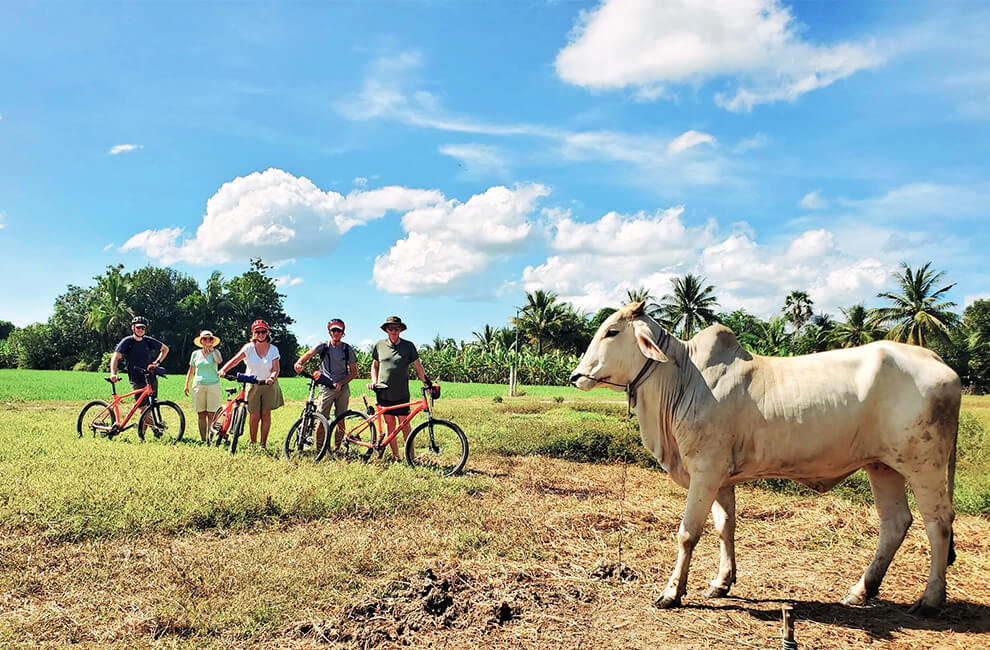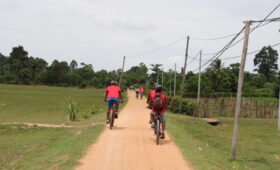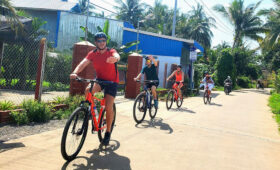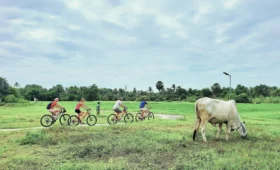Cambodia, with its rich history, stunning landscapes, and warm hospitality, is a dream destination for bike enthusiasts. Whether you’re a seasoned cyclist or a casual rider, planning the perfect bike adventure in this Southeast Asian gem requires careful preparation. From choosing the right routes to packing essentials, this guide will help you create an unforgettable cycling experience in Cambodia.
Why Choose Cambodia for Your Perfect Bike Adventure?
Cambodia is a cyclist’s paradise, offering a unique blend of cultural heritage, natural beauty, and challenging terrains. The country is home to iconic landmarks like the Angkor Wat temple complex, lush rice paddies, and serene rural villages. Cycling through Cambodia allows you to explore these sights at your own pace, immersing yourself in the local culture and scenery.
Step 1: Choose the Right Time to Visit
Timing is crucial for a successful bike adventure in Cambodia. The best time to visit is during the dry season, which runs from November to March. During this period, the weather is cooler, and the roads are in better condition, making it ideal for cycling. Avoid the rainy season (May to October) as flooded roads and high humidity can make riding challenging.
Step 2: Plan Your Route
Cambodia offers a variety of cycling routes catering to different skill levels. Here are some popular options:
1. Angkor Wat and Siem Reap
Explore the ancient temples of Angkor Wat on two wheels. This route combines history and adventure, taking you through lush jungles and past centuries-old ruins.
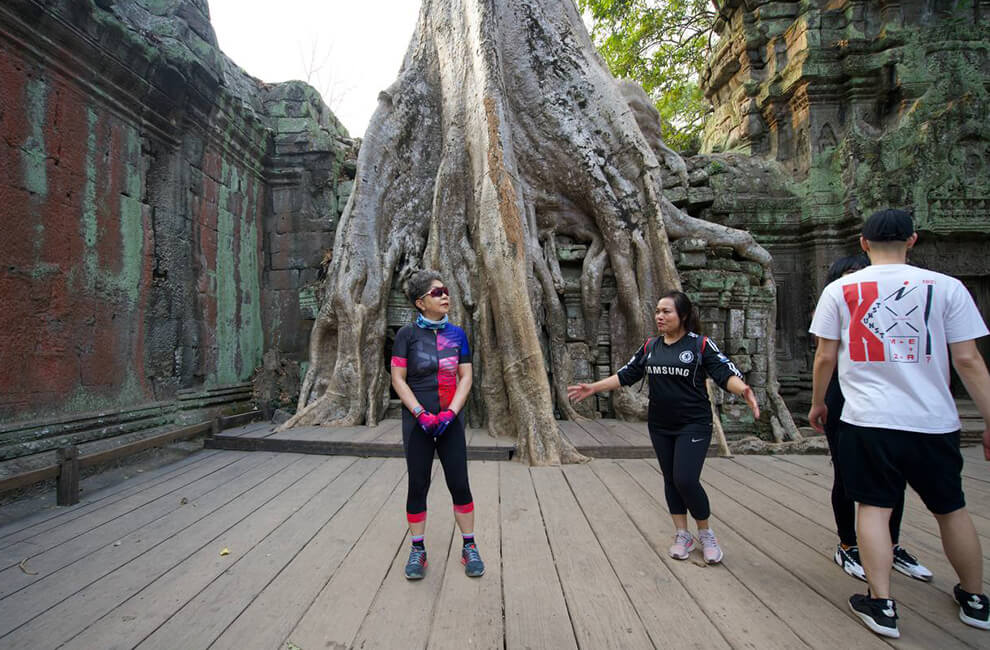
2. Phnom Penh to Kampot
This scenic route takes you from the bustling capital to the tranquil riverside town of Kampot. Along the way, you’ll pass through rural villages, pepper plantations, and the famous Bokor National Park.
3. Cardamom Mountains
For experienced cyclists, the Cardamom Mountains offer a challenging yet rewarding ride. This remote area is known for its dense forests, wildlife, and pristine rivers.
4. Mekong River Trail
Follow the mighty Bike Mekong River through picturesque landscapes, stopping at traditional villages and local markets.
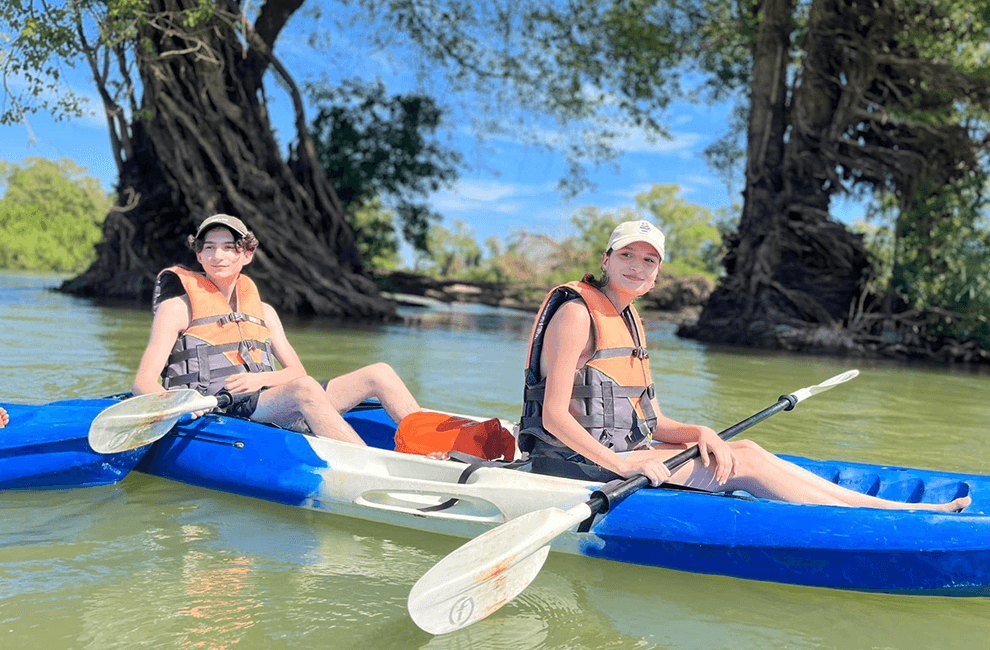
Cambodia Expedition: Culture, History, Bike, Kayak
- Duration: 7 Days – 6 Nights
- Destination: Siem Reap, Kratie, Phnom Penh
$1253
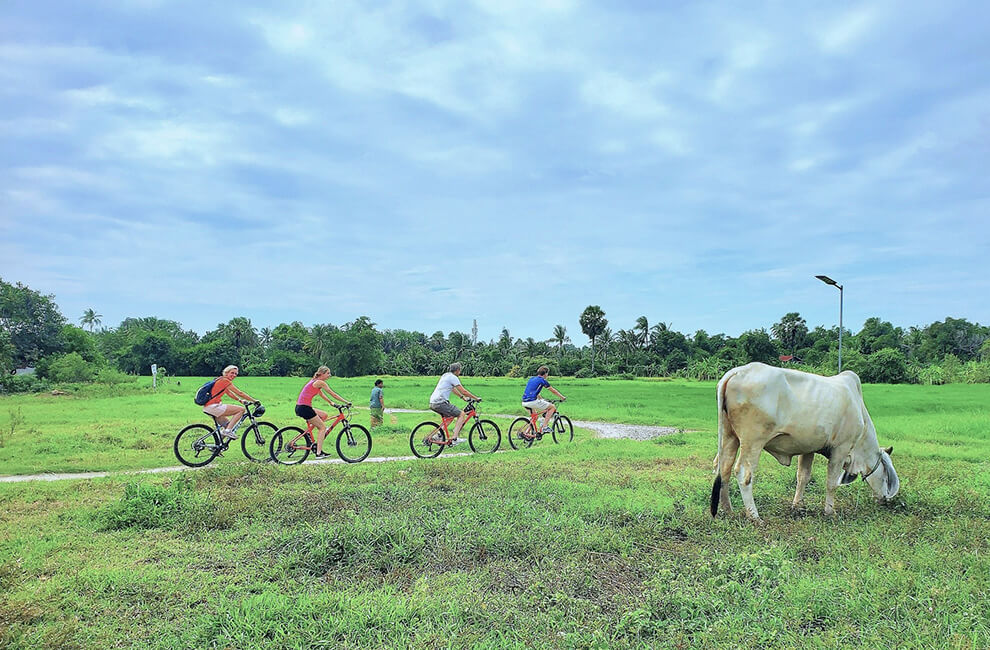
Battambang Local Livelihood Full-Day Bike Tour
- Duration: 7 hours
- Destination: Battambang Bike Tour
- Average Distance: 30-35 Km
$65
Step 3: Prepare Your Bike and Gear
Having the right equipment is essential for a smooth bike adventure. Here’s what you’ll need:
- A Reliable Bike: Choose a bike suited to the terrain. A mountain bike or hybrid bike is ideal for Cambodia’s mixed roads.
- Repair Kit: Carry a basic repair kit with spare tubes, a pump, and tools.
- Helmet and Safety Gear: Safety should always come first. Wear a helmet, gloves, and reflective clothing.
- Hydration System: Stay hydrated with a water bottle or hydration pack.
- Navigation Tools: Bring a GPS device or a detailed map of your route.
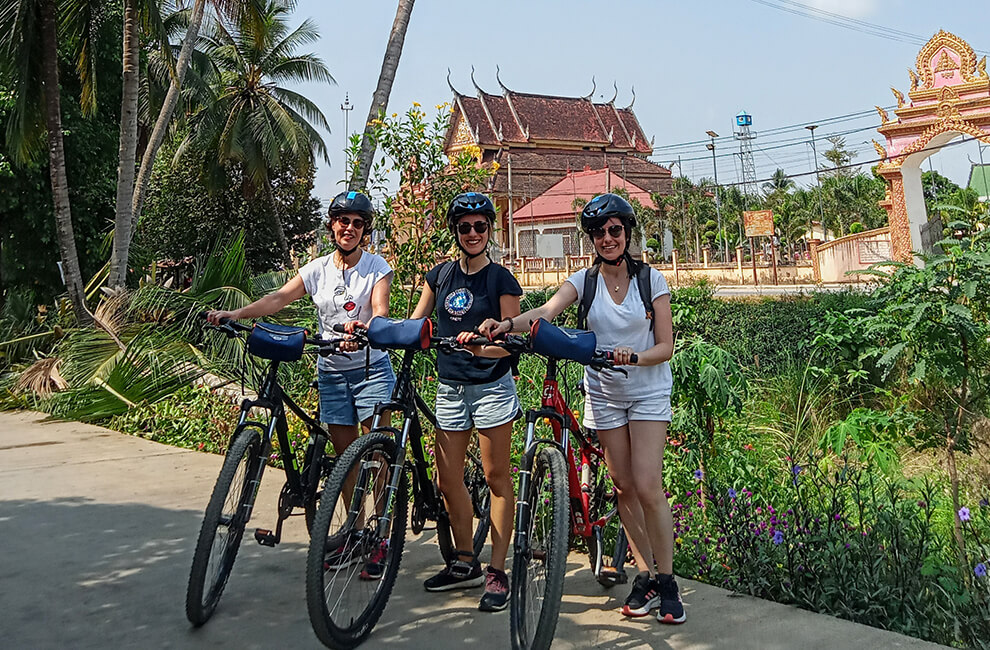
Step 4: Pack Smart
Packing light but efficiently is key to a successful cycling trip. Here’s a checklist of essentials:
- Clothing: Lightweight, moisture-wicking clothes, a rain jacket, and comfortable cycling shoes.
- Sunscreen and Insect Repellent: Protect yourself from the sun and bugs.
- First Aid Kit: Include bandages, antiseptic, and any personal medications.
- Snacks: Energy bars, nuts, and dried fruit for quick fuel.
- Camera: Capture the stunning landscapes and cultural experiences.
Step 5: Understand Local Culture and Etiquette
Cambodia is known for its friendly locals and rich traditions. To make the most of your bike adventure, respect the local culture:
- Dress Modestly: When visiting temples or rural areas, cover your shoulders and knees.
- Learn Basic Khmer Phrases: A simple “hello” (sous-dey) or “thank you” (aw-koon) can go a long way.
- Support Local Businesses: Buy food and souvenirs from local vendors to support the community.
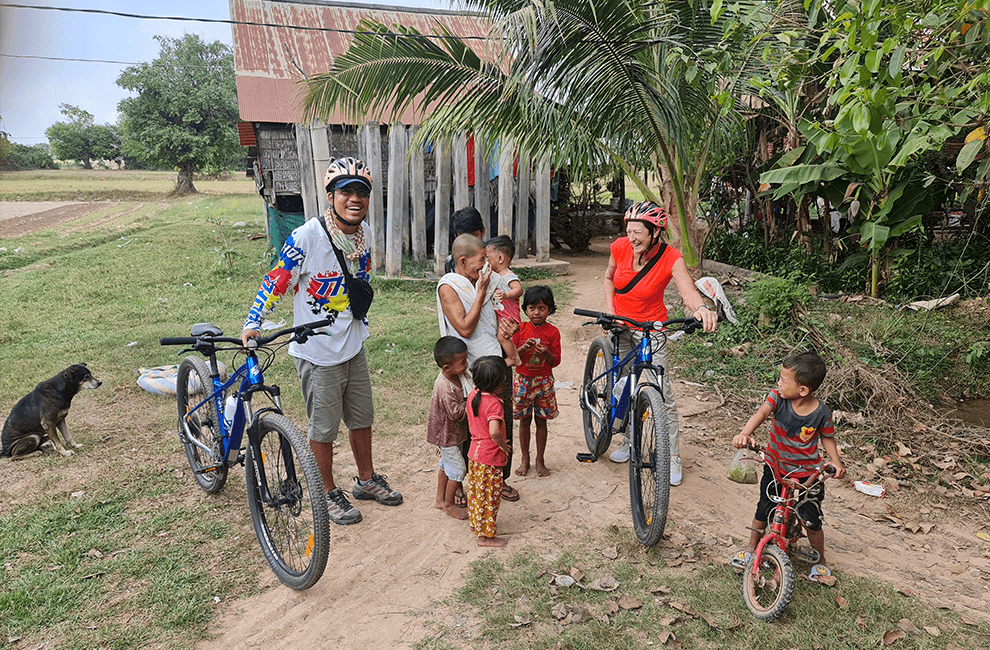
Step 6: Stay Safe on the Road
Safety is paramount when cycling in a foreign country. Follow these tips to ensure a safe journey:
- Ride Defensively: Be aware of traffic, especially in cities like Phnom Penh.
- Avoid Night Riding: Poor road conditions and limited visibility make night cycling risky.
- Stay Hydrated: Drink plenty of water, especially in hot weather.
- Check Weather Updates: Be prepared for sudden changes in weather.
Step 7: Join a Guided Tour or Go Solo
Decide whether you want to explore Cambodia on your own or join a guided bike tour. Guided tours offer the advantage of local expertise, pre-planned routes, and support vehicles. However, solo trips provide more flexibility and a sense of adventure.
Step 8: Capture the Experience
A bike adventure in Cambodia is more than just a physical journey; it’s a chance to connect with the land and its people. Take time to document your trip through photos, journal entries, or videos. These memories will last a lifetime.
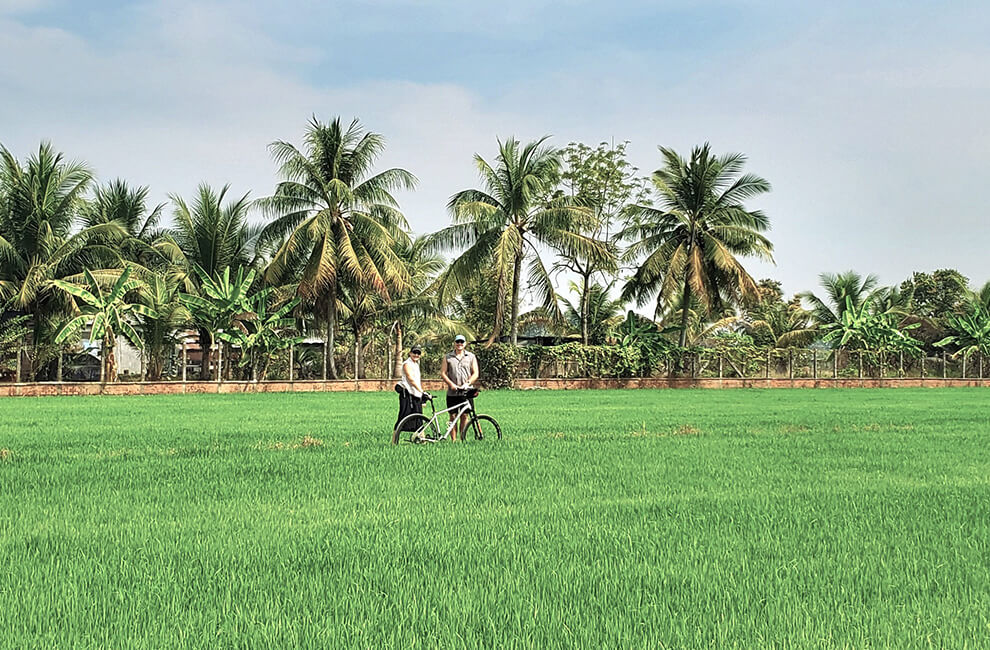
Final Thoughts
Planning the perfect bike adventure in Cambodia requires careful preparation, but the rewards are well worth the effort. From the awe-inspiring temples of Angkor Wat to the tranquil countryside, Cambodia offers a cycling experience like no other. By following this guide, you’ll be well-equipped to embark on an unforgettable journey through one of Southeast Asia’s most captivating destinations.
So, gear up, hop on your bike, and get ready to explore the wonders of Cambodia on two wheels. Happy cycling!
By following these steps and tips, you’ll be well on your way to planning the ultimate bike adventure in Cambodia. Whether you’re a solo traveler or part of a group, this guide ensures a safe, enjoyable, and memorable experience.
FAQs About How to Plan a Bike Adventure
What is the best time of year to plan a bike adventure in Cambodia?
The best time to visit Cambodia for a bike adventure is during the dry season, from November to February. The weather is cooler, with less humidity and minimal rainfall, making it ideal for cycling.
What type of bike is recommended for cycling in Cambodia?
A sturdy mountain bike or hybrid bike is recommended, as many roads in Cambodia are unpaved or uneven. Ensure your bike has good suspension, durable tires, and is well-maintained for long rides.
Which regions in Cambodia are best for a bike adventure?
Popular regions include Siem Reap (for Angkor Wat and rural villages), Battambang (for scenic countryside rides), and the Cardamom Mountains (for challenging trails and lush landscapes). The Mekong River region also offers beautiful routes.
How should I prepare for the heat and humidity while cycling in Cambodia?
Stay hydrated by carrying plenty of water, wear lightweight and breathable clothing, and apply sunscreen regularly. Start your rides early in the morning to avoid the midday heat and take breaks in shaded areas.
Are there guided bike tours available in Cambodia?
Yes, there are many guided bike tours available, ranging from half-day trips to multi-day adventures. Companies like Grasshopper Adventures and VeloAsia offer well-organized tours with experienced guides.
What should I pack for a bike adventure in Cambodia?
Essential items include a repair kit, spare tubes, a pump, a first-aid kit, a map or GPS device, snacks, a reusable water bottle, and lightweight rain gear. Don’t forget your camera to capture the stunning scenery!
Is it safe to cycle in Cambodia?
Cycling in Cambodia is generally safe, but it’s important to stay alert on busy roads and wear a helmet. Stick to quieter rural roads when possible, and avoid cycling at night due to limited visibility and road conditions.
Can I rent a bike in Cambodia, or should I bring my own?
You can rent bikes in major cities like Siem Reap and Phnom Penh, but if you’re planning a long-distance adventure, bringing your own bike is recommended to ensure comfort and reliability.
What cultural etiquette should I be aware of while cycling in Cambodia?
Dress modestly, especially when visiting temples, and always ask for permission before taking photos of locals. Be respectful of local customs and traditions, and greet people with a friendly “Chum reap suor” (hello).
How can I support local communities during my bike adventure?
Stay in locally-owned guesthouses, eat at small restaurants, and purchase souvenirs from local markets. Consider joining community-based tourism initiatives that directly benefit Cambodian villages.

